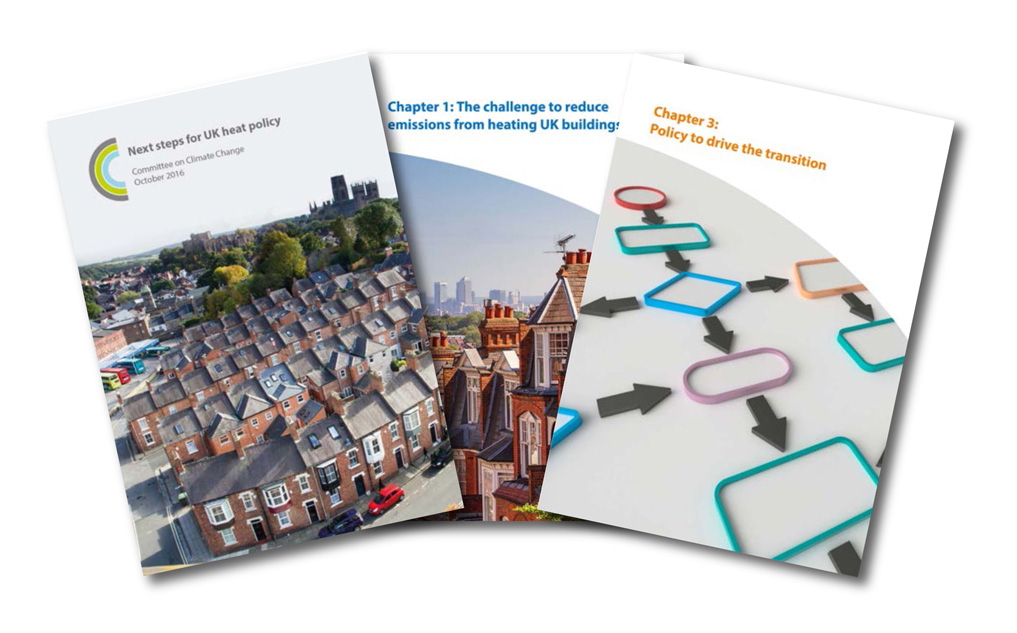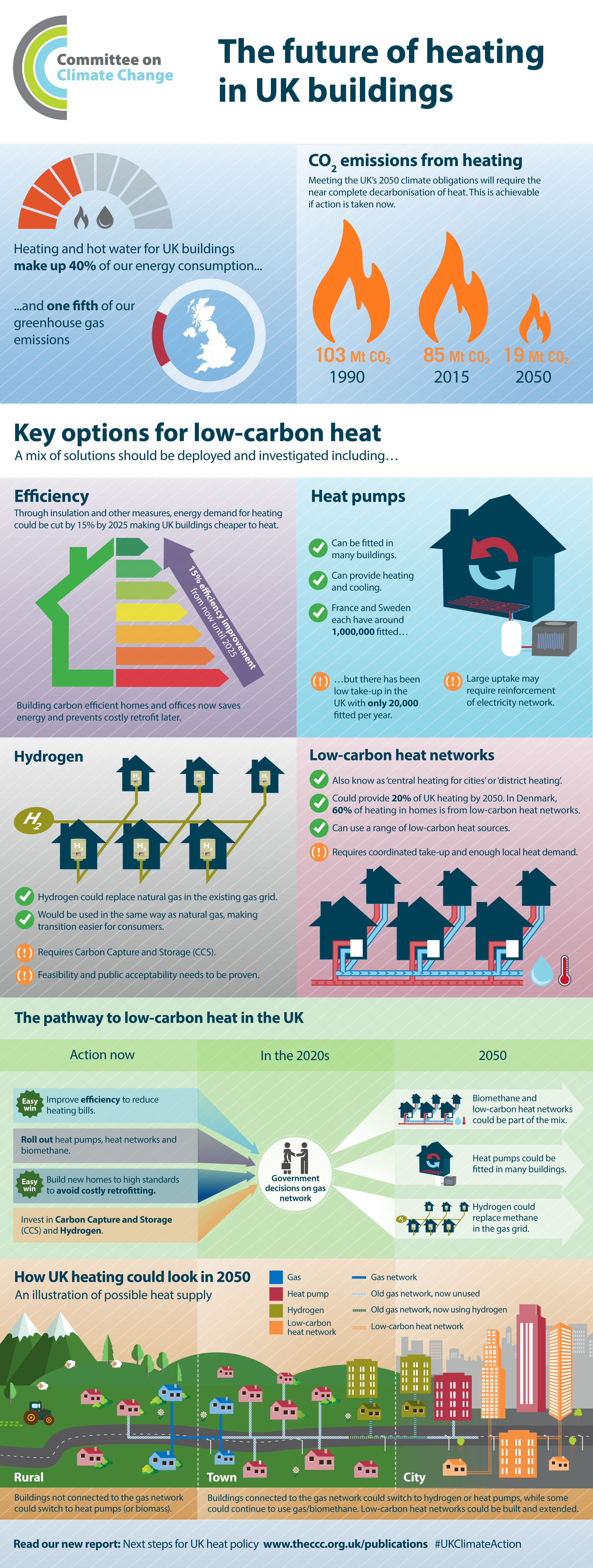
Heating and hot water use in buildings make up 40% of our energy consumption and 20% of our greenhouse gas emissions in the UK.
To meet Climate Change Act targets and maintain the UK contribution to international action under the Paris Agreement, these emissions must be largely eliminated by around 2050. However progress to date has stalled. The Committee on Climate Change has released a new report — Next Steps for UK Heat Policy — that discusses the issues in detail.
The report suggests that ‘government needs a credible new strategy and a much stronger policy framework for buildings decarbonisation over the next three decades.’ The report goes on further to say ‘many of the changes that will reduce emissions will also contribute toward modern, affordable, comfortable homes and workplaces and can be delivered alongside a major expansion in the number of homes.
The report is split into three sections; the first identifies the need to reduce emissions from UK heating while meeting consumer demands for comfortable, affordable and easy to operate heating in the home and the workplace. The second chapter focuses on the options available to tackle the challenge, such as identifying the priorities for an effective heat strategy, preparing for decarbonisation and increasing the implementation of low-regrets measures. The third section looks at how effective policy can address each of these areas.
The key messages within the report are that:
- Government must set out the role of hydrogen for buildings on the gas grid in the next Parliament.
- Action is required to reduce emissions and prepare for future decisions — ensure new homes are built to high efficiency standards and incorporate low-carbon heating, improve the energy efficiency of existing stock, deploy low-carbon heat technology and begin Hydrogen pilots of sufficient scale and diversity to allow us to understand whether this can be a genuine option at large scale.
- The forthcoming Emissions Reduction Plan must incorporate immediate action and prepare for decisions to be made in the next Parliament.
For a copy of the report visit: www.theccc.org.uk.









